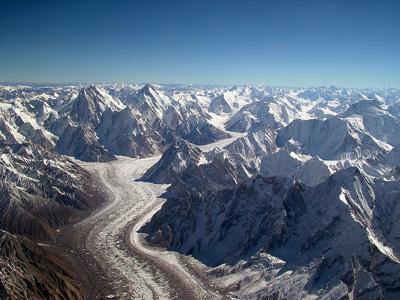The Ignorance of "Experts"
by Ellendra
(Madison, Wi, USA)
The overwhelming majority of those screaming the loudest about Global Warming, would not know nature if it bit them on the butt.
People sit in their air-conditioned downtown offices all day writing environmental policy. Others hold protests and rallies where they convince themselves they're experts in ecology when the only "nature" they've seen are the trees that grew on their college campuses.Mixed Reactions
At best, this kind of passion over an unknown subject leads to poorly-focused or counter-productive decisions. At worst, it is downright deadly.
As I type this there is a group of climatologists trying to get funding for a project to spray massive quantities of sulferic acid, H2SO4, into the upper atmosphere. Yes, the same acid that causes acid rain, and they want more of it. Why? Because they think it will absorb CO2 from the atmosphere. Turn the air poisonous for the sake of CO2.
Alternatives
Another group is planning to dump several megatons of calcium carbonate into the oceans, hoping that turning the oceans alkaline will cause the water to absorb more CO2. Just ignore the fact that every living thing in the oceans would die, with the ripple effect eventually reaching every land animal as well, including humans. "Save the Earth, Kill Everything!"? Is that really our battle cry?
Last I heard, this second group had gotten enough of their funding to start running tests off the coast of Africa.
And yet, those who participate in the ecosystem every day, are ridiculed and shouted down.
Barry's Response - They say a little knowledge is a dangerous thing. We know where to find good examples of that, don't we, Ellendra?
There are a lot of scientists who share your concerns about bio-geoengineering. Adding sulfur dioxide mimics volcanic eruptions by reflecting sunlight and cooling the planet. It doesn't address the root cause, like excessive greenhouse gases, which could lead to unintended consequences like ocean acidification and regional climate change.
Adding calcium carbonate to the oceans to enhance CO2 absorption poses new risks to marine ecosystems. It could disrupt marine life and biogeochemical cycles.
Indigenous, long-term, place-based environmental understanding
We could incorporate Traditional Ecological Knowledge (TEK) into our climate strategies. In the past, indigenous communities have practiced sustainable land management, including controlled burns to prevent bigger wildfires. Sustainable practices can be improved by integrating TEK.
Feel free to comment below or Search this site for more information now.
Do you have concerns about air pollution in your area??
Perhaps modelling air pollution will provide the answers to your question.
That is what I do on a full-time basis. Find out if it is necessary for your project.
Have your Say...
on the StuffintheAir facebook page
Other topics listed in these guides:
The Stuff-in-the-Air Site Map
And,
Thank you to my research and writing assistants, ChatGPT and WordTune, as well as Wombo and others for the images.
GPT-4, OpenAI's large-scale language generation model (and others provided by Google and Meta), helped generate this text. As soon as draft language is generated, the author reviews, edits, and revises it to their own liking and is responsible for the content.



